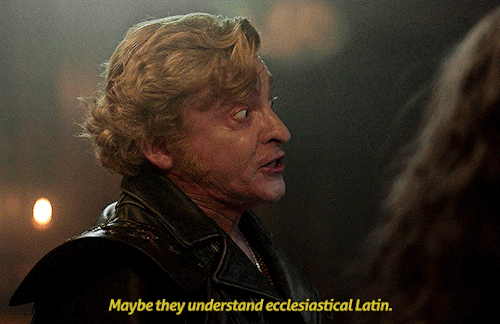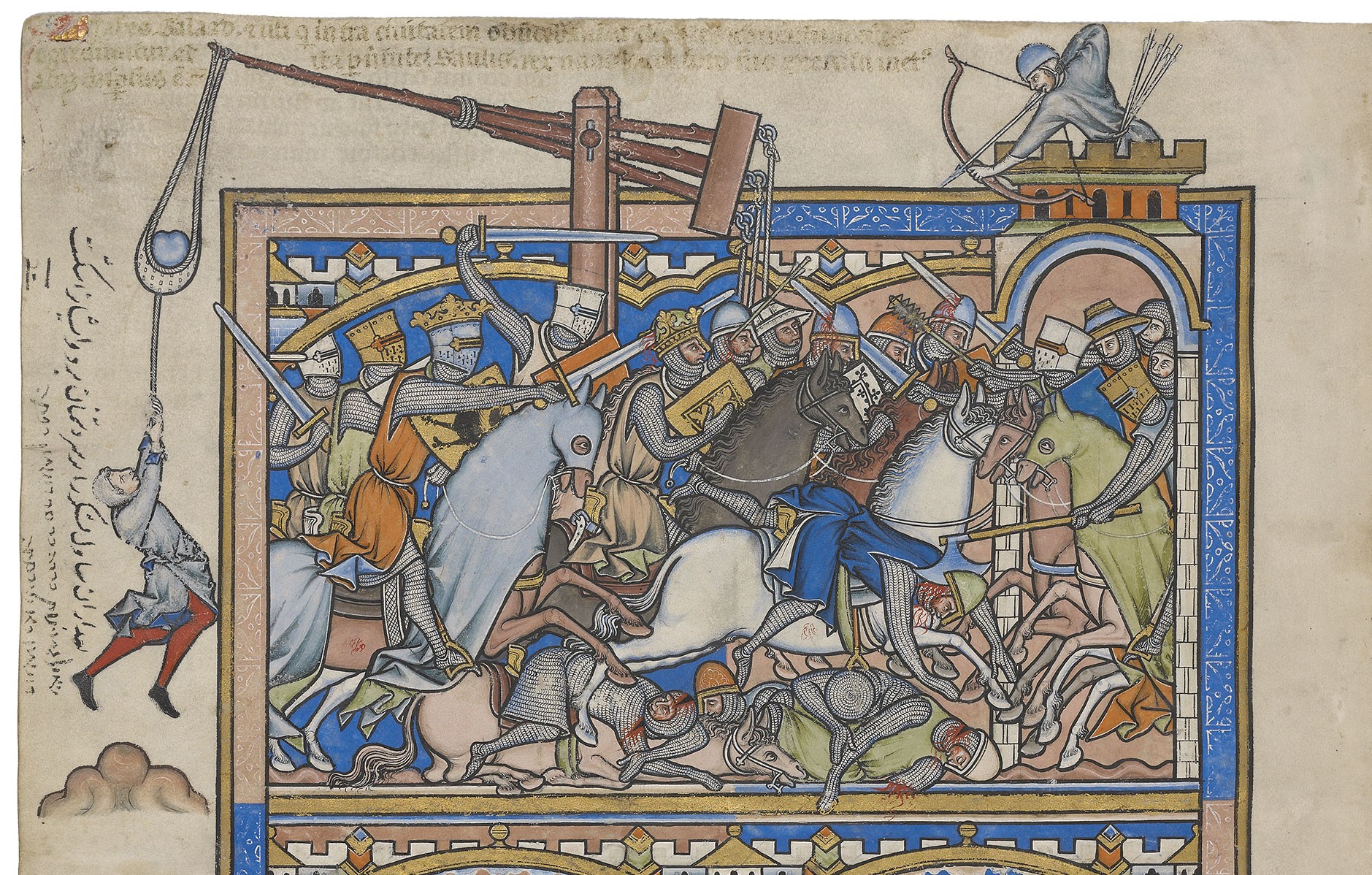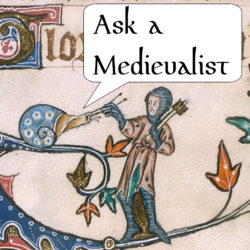Synopsis
The last of the major proto-protestant heresies we’re going to examine is the Hussites, who were led by Jan Hus. And then we’re going to quick talk about the man, the myth, the machine, Martin Luther.
The first rule of Medieval Studies is “Don’t talk about Luther.” [Also the second and third rules.–Jesse] But we’re doing it today.
Annotations and Corrections
1/ Monastic orders and asceticism: see episode 5 on Hermits and Anchoresses and episode 49 notes 9, 10, and 11.
2/ I believe we’ve mentioned this before, but Catholic priests weren’t always expected to be celibate.
3/ Okay, it looks like “Henry VIII founded his own church so he could get divorced” is not one hundred percent of the story and there was some complicated stuff going on. But that was well into the not-Middle-Ages-anymore time, so you’ll have to find one of the other four million books on this.
4/ For more on Falstaff, Oldcastle, and Fastolf, see episode 49 note 20.
The Avignon Papacy: 1309–1376. https://en.wikipedia.org/wiki/Avignon_Papacy
Generally speaking Bohemia didn’t have a sea coast, which is how you know that A Winter’s Tale is a fairy tale (although Shakespeare’s source is also the source for the sea coast).
5/ Richard II (1367–1400). https://en.wikipedia.org/wiki/Richard_II_of_England As Jesse says, his second wife, Isabella of Valois, was six when they married and nine when he died. Eventually she married her cousin Charles, Duke of Orleans, and then died in childbirth at age 19.
Richard II is a really beautiful play and you should read it. [Yes!!-–Jesse]
6/ The Hussites! Jan Hus https://en.wikipedia.org/wiki/Jan_Hus
7/ The second Vatican council (aka Vatican II) was 1962–1965.
They still do masses in Latin in Rome. (I think Dr. Jesse and I attended one once.) [Yes!! So cool!!–Jesse]

[Our Flag Means Death is THE BEST. Let’s have some ecclesiastical Latin in season 2!–Jesse]
Greek is the worst.

Sorry, Greek. Sorry, Dr. Jesse who is actually in Greece as I edit this. [I mean, Greek did give us theatre and history and philosophy, just for starters. 🙂 Interestingly, some schools are rethinking that second semester Greek class precisely because not everyone wants to be a linguist. Some people want to be historians or philosophers but also want to be able to read that stuff in the original Greek.–Jesse]
About Classical Sanskrit: Just don’t.
(Good on me to choose an example word, “woman”, that is NOT Greek at its root…)
8/ When we say “why learn Latin when you can read it in translation,” just know that despite agreeing, I am crying quietly inside—a lot of my MA work was about how things get translated (or not) between languages and cultures.–-Em [Yes, translators should be credited as equal to authors!!–Jesse]
9/ If we actually discussed the frequency of communion before, will put link here. [I’m sure we’ve discussed it, but we don’t seem to have made a note.–Jesse]
10/ If a pope and an antipope collide, they annihilate each other. True facts.
11/ Jean Gerson came up in our episode on Joan d’Arc (ep. 6 notes 25, 27, and 33; ep. 8 note 9; ep. 9 note 23). Probably some others.
Council of Constance https://en.wikipedia.org/wiki/Council_of_Constance
12/ The man, the myth, the MARTIN LUTHER (1483–1546). https://en.wikipedia.org/wiki/Martin_Luther
13/ John Wycliffe was mentioned recently—see episode 47.
14/ Jesus’ quotation about the camel needle: “And again I say unto you, It is easier for a camel to go through the eye of a needle, than for a rich man to enter into the kingdom of God.” (Matthew 19:24) [I clearly missed the, uh, abbreviation to “rich man passing through the eye of a camel.” Otherwise there would have been many, many lolz.–Jesse]
15/ The question of cannibalism was in episode 3, note 24.
16/ This is from the first section of Ulysses, lines 636–650:
— After all, I should think you are able to free yourself. You are your
own master, it seems to me.
— I am the servant of two masters, Stephen said, an English and an
Italian.
— Italian? Haines said.
A crazy queen, old and jealous. Kneel down before me.
— And a third, Stephen said, there is who wants me for odd jobs.
— Italian? Haines said again. What do you mean?
— The imperial British state, Stephen answered, his colour rising, and
the holy Roman catholic and apostolic church.
Haines detached from his underlip some fibres of tobacco before he spoke.
— I can quite understand that, he said calmly. An Irishman must think like
that, I daresay. We feel in England that we have treated you rather unfairly.
It seems history is to blame.
The character of Haines is a British student studying Irish folklore, and I want to say his line about “It seems history is to blame” is just so amazingly apropo and also insufficient and just, like, it says everything about colonialism. Thank you once again for a tiny piece of perfection, Mr. Joyce.
17/ Henry VIII founds the Church of England in 1534.
18/ The Council of Trent (1545–1563) https://en.wikipedia.org/wiki/Council_of_Trent
19/ The Counter-Reformation: 1517–1648 https://en.wikipedia.org/wiki/Counter-Reformation
20/ Other reasons why WWI started (per Blackadder). [The best!–Jesse]
21/ Of all the various revolutions that got countries out of the USSR, the Czech Republic (then Czechoslovakia) had one called the Velvet Revolution, which is honestly a pretty awesome name.
22/ I couldn’t find the part where John Oliver says he hates Europe, but here’s an 18-min compilation of him making fun of different countries.
23/ CORRECTION: It was the house of Saxe-Coberg-Gotha that became the house of Windsor, not Hanover. We regret this error.
The short version of what happened with George being German is: Queen Anne died in 1714 without having produced any heirs, and so the British went to what was then the Holy Roman Empire and is now Germany (Hanover, specifically) and grabbed George Louis, son of Ernest Augustus and Sophia of Hanover (the Winter King and Queen of Bohemia). Sophia was an amazingly interesting person who happened to be a close personal friend of GOTTFRIED LEIBNIZ, but more importantly she was also the granddaughter of James VI/I. James was 1/ the reason Shakespeare wrote Macbeth, 2/ possibly gay (we don’t really know but he did have some super intense relationships with men who did things like stay the night in his rooms and also he made them dukes later on), and 3/ his son Charles I was later beheaded by Oliver Cromwell (which is both a major plot point in some novel by Dumas my father talked about a lot) and his descendant James II later abdicated, which is the set up for the extremely boring political bickering that goes on in Outlander. Essentially–going back to why we always say James I of England / James VI of Scotland–it’s because he was the king of both SEPARATELY, and this was really important to the Scots who were still in many ways a separate group rather than being “those quirky British people with angry eyebrows” as we now all typify them, so when James II quit and left and the English parliament gave the throne of Scotland to William III and Mary II, the Scots got super angry about it.
If you made it through that, I’m sorry.
[Also Edward VIII was a Nazi (sympathizer), so we’re glad he abdicated.–Jesse]
24/ Let me be clear, Peter Singer has a lot of really unpleasant views on euthanasia.
25/ We’re posting this way closer to the anniversary of Marguerite Porete getting burned at the stake than I thought we would. [Yay!!! Let the commemorations commence!!–Jesse]
Podcast: Play in new window | Download

